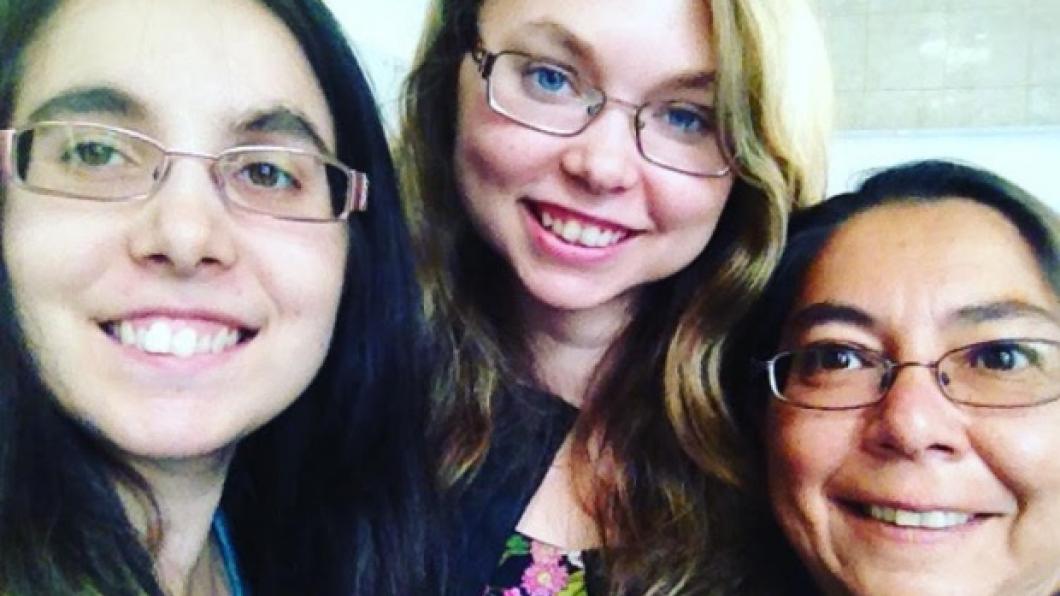
Young carers and other pieces of disability news
Photo by CBC News
By Louise Kinross
Youth who help care for a disabled or ill brother or sister were in the spotlight this week at the Young Carers Forum in Toronto, organized by The Change Foundation, an Ontario health think tank.
Alyssa Van Wynen, 21, centre above, spoke to CBC about her experience supporting her older sister Tiffany, left, who suffered a traumatic brain injury in a car accident. “With my sister, she lost out on a lot of stuff, so there’s that huge guilt factor, too,” she says in this eye-opening interview. “Because I am younger than her, I’m getting all these opportunities and stuff that she didn’t have the chance to experience.”
The Change Foundation says as many as one-third of people between the ages of 15 to 24 in Ontario act as caregivers to a family member. You can watch some of their stories here.
Two Toronto programs for siblings of children with disabilities are the Young Carers Program through Toronto Hospice, and a Sibling Support Program at Extend-A-Family.
In other news, check out this interview with Microsoft’s Chief Accessibility Officer Jenny Lay-Flurrie, who is deaf, on AXSChat, where Twitter users discuss accessibility in business.
Microsoft has its own profile on Jenny.
The London, U.K. travel company Accomable, for people who need accessibility, has been bought by Air BnB. That should mean more and better accessibility features in Air BnB listings.
Two new books caught my eye today. The first is Academic Ableism: Disability and Higher Education. That’s it, I thought! Academic ableism. That’s the concept I’ve been trying to articulate. How the culture of academia excludes people with disabilities, especially intellectual disabilities.
Here’s a short passage: “Disability has always been construed as the inverse or opposite of higher education. Or, let me put it differently: higher education has needed to create a series of versions of 'lower education' to justify its work and to ground its exceptionalism, and the physical gates and steps that we find on campuses trace a long history of exclusion.”
The book looks at how universities have helped define, study and devalue disability, but never recognized disability as a source of knowledge.
University of Michigan Press describes it thus: “The ethic of higher education encourages students and teachers alike to accentuate ability, valorize perfection, and stigmatize anything that hints at intellectual, mental, or physical weakness, even as we gesture toward the value of diversity and innovation.” Author Jay Dolmage is associate professor of English at the University of Waterloo.
The book come out Dec. 27.
The other book that intrigued me is A Feminist Ethnography of Secure Wards for Women with Learning Disabilities: Locked Away.
Author Rebecca Fish writes: “This book is an ethnography of locked wards for women with learning disabilities. It represents just a small part of my life the year of my fieldwork...These women had been removed, sometimes a great distance, from their families and friends, and compelled to lead a restricted life under surveillance and control.” Rebecca is a researcher with the Centre for Disability Research at the University of Lancaster in the U.K.
Finally, CanChild is looking for feedback on a new knowledge hub based on its F-words in childhood disability. Check it out and click on the top right to do an evaluation.